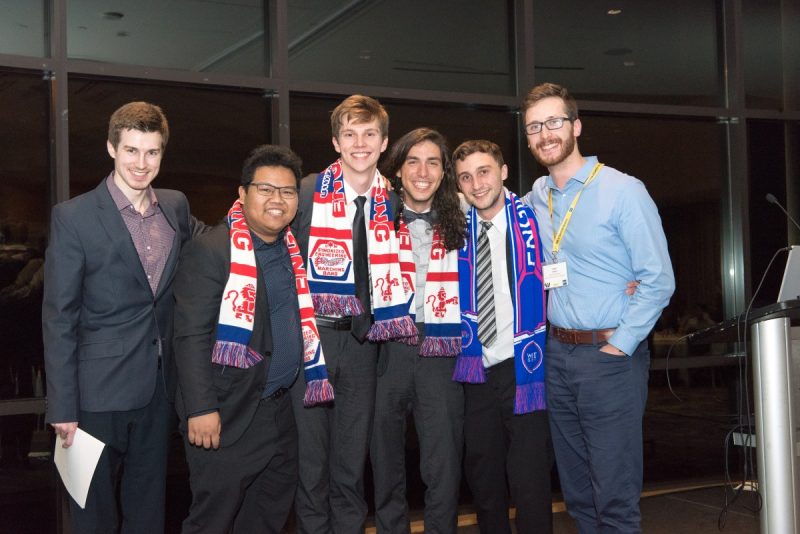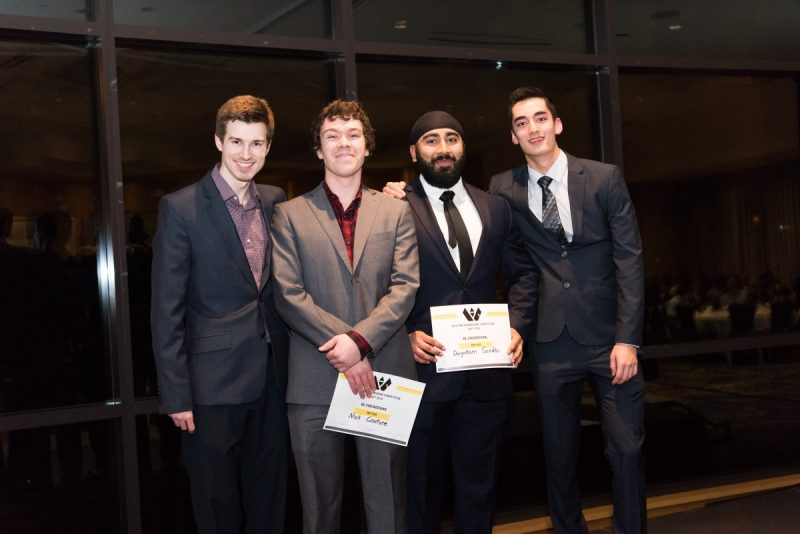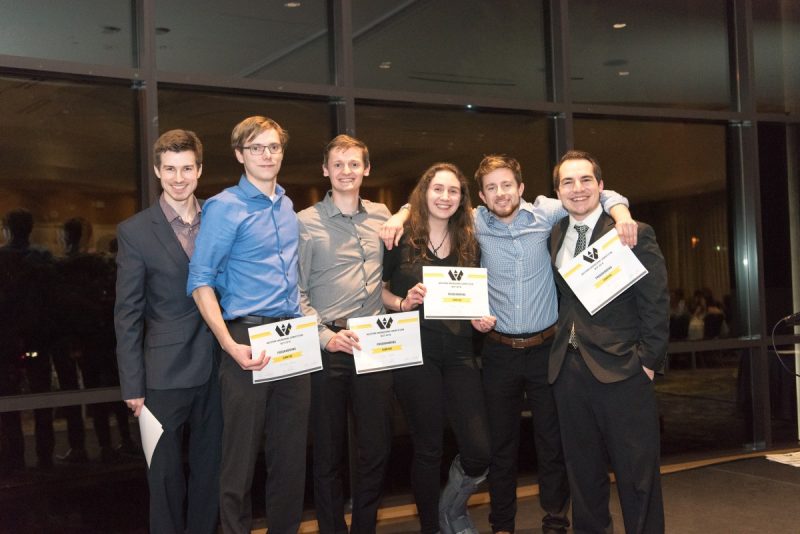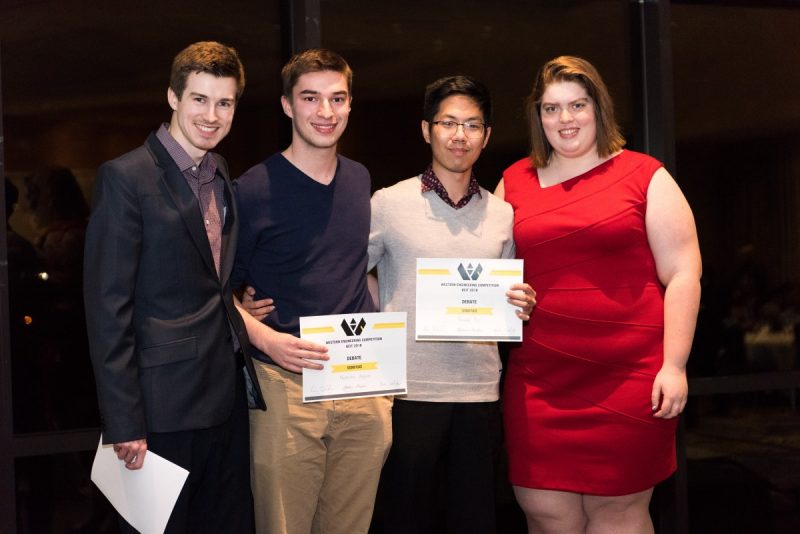Twelve Faculty of Engineering students secure spots in the Canadian Engineering Competition
The Faculty of Engineering at the University of Manitoba had a remarkable showing at this year’s Western Engineering Competition (WEC) hosted by the British Columbia Institute of Technology (BCIT). Four of the seven teams that attended were able to secure placement in the Canadian Engineering Competition (CEC) hosted in March 2018 by Ryerson University in Toronto, ON.
From the Western Canadian engineering universities, Manitoba had the most successful overall achievement and will be sending the largest delegation of students.
Meet the student teams:

The Senior Design Team will be represented by Kim Laberinto, Maxim Zolotarev, Alex Czehryn, and Jordan Hofer (middle – left to right). Alex and Kim are fourth-year electrical students, and Jordan and Max are fourth-year Mechanical students. This year, the design challenge was to build a system that would be able to autonomously allow boats to enter and exit a 4-way river intersection while still being able to allow land traffic to cross between the neighbouring land masses. At their disposal were microcontrollers, motors, various types of sensors, as well as structural material such as steel hardware and cardboard.
The team’s design solution was composed of an Arduino microcontroller, four motor-controlled bridges, and an ultrasonic sensor to detect incoming boats. When a boat approached the 4-Port system and intersection, the system analyzed the boat’s distance from the ultrasonic sensor and only raised the appropriate bridges to allow the boat to cross. This effectively allowed every boat to pass while minimizing the effect on land traffic in the community. As a result of the team’s performance in their prototype and their presentation, the team successfully placed second in their Senior Design competition category.

The Re-engineering Team will be represented by Nick Couture and Dayakarn Sandu (middle – left to right). Nick is a fourth-year mechanical student and Dayakurn is a fifth-year electrical student. Two problem statements were given to re-engineer. The first was to repurpose the salt brine waste from a thermal desalination plant in Dubai. Their solution consisted of using the brine to revitalize the agricultural industry of Dubai. They decided to pump a portion of the brine to a processing facility adjacent to agricultural farming land, which would be turned into fertilizer using a potassium adsorption process or put into solar stills. The collected salinity free water would be harvested and pumped into irrigation channels for the farmland, and the excess leftover salt would be sold.
The second case was to re-engineer a natural gas thermal power generating station being decommissioned by BC Hydro. Dayakurn and Nick decided to turn the station into a compost processing plant that Harvest Power© would buy from BC Hydro after the stations overhaul. This would utilize much of the existing infrastructure but would tackle the secondary issue of compostable materials ending up in Vancouver landfills. The compost produced emits a high temperature biogas, which can be used in place of natural gas to drive the turbine of a generator. The created compost could then be sold as fertilizer, the generated power can be sold back to the grid to BC Hydro, and the generated heat can be used to heat local homes. The re-engineering team successful received first place for their innovative and thorough design solutions.

The Programming Team will be represented by Matthew Kehler, Austin Shaski, Chelsea Taylor, and Cole Bouchard (middle – left to right). Austin, Cole, and Chelsea are fifth-year computer students and Matthew is a fourth-year electrical student. In this competition, the competing teams were tasked with building a time management and task developer application as a Windows 10 executable. Team Manitoba focused on the core features of the application and sacrificed aesthetics, which allowed them to complete the main functionality of the program with the addition of a unique feature in the form of a basic virtual assistant. The team implemented their solution using the Windows Forms toolkit. The final application allowed the user to create, delete, and track tasks from a simple to use interface. Additionally, the design of the program included a calendar for referencing task deadlines and a countdown timer for the next task due. The programming team was successful in securing second in the programming competition.

The Debate Team will be represented by Nicholas Aguiar and Frank Yu (middle – left to right). Nicholas and Frank are third-year electrical students and argued interesting and relativistic points to each debate they entered. Topic’s included difficult issues such as; animal testing and the endorsement of Genetically Modified Organics in business applications and consumption. Nicholas and Frank came in second to the University of Saskatchewan.
We are proud of our students accomplishments and wish them the best of luck at the Canadian Engineering Competition.






